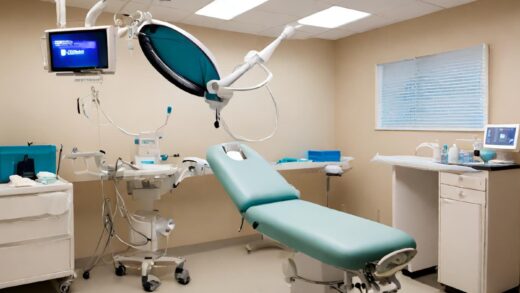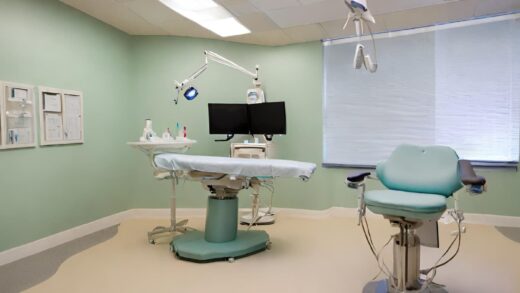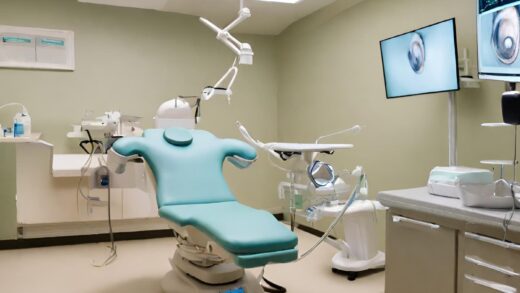Opting for custom LASIK surgery is a significant decision that often brings about improved vision, reducing or even eliminating the need for glasses or contact lenses. While LASIK is highly effective, there are instances where individuals may experience changes in their vision over time or have residual refractive errors post-surgery. In such cases, enhancements or touch-up procedures become relevant. This guide aims to provide a clear understanding of enhancements after LASIK and when they may be necessary.
Why Enhancements May Be Necessary
Refractive Changes Over Time
Like many aspects of our health, our vision can change as we age. LASIK offers remarkable vision correction at a specific point in time, but it doesn’t halt the natural progression of vision changes. For some individuals, this gradual shift in vision may necessitate enhancements to maintain optimal visual acuity.
Residual Refractive Errors
While LASIK is known for its effectiveness in correcting refractive errors like nearsightedness, farsightedness, and astigmatism, there are cases where minor refractive errors may persist after the initial surgery. These residual errors can result from various factors, including unique eye characteristics. Enhancements after LASIK can help fine-tune vision by addressing these remaining refractive errors.
Healing Variability
Every individual’s healing process is unique. Although most LASIK patients experience a smooth and predictable recovery, some may exhibit variability in their healing responses. This variability can lead to unexpected changes in vision quality, making enhancements a valuable option for refining the outcomes of LASIK.
Assessment and Evaluation
When to Consider Enhancements
The decision to undergo an enhancement procedure is a crucial one. It’s not always necessary immediately after LASIK, and waiting until your vision stabilizes is often recommended. Typically, this stabilization occurs within a few months to a year after the initial surgery. Your eye specialist will closely monitor your progress during this period to determine the most suitable timing for enhancements.
Consultation with an Eye Specialist
The journey toward an enhancement procedure begins with a thorough consultation with an experienced eye specialist. During this consultation, your eye specialist will assess your vision, the stability of your prescription, and your overall eye health. They will also discuss your visual goals and expectations to determine if enhancements are the right choice for you.
The Enhancement Procedure
Similarities to Initial LASIK
Enhancement procedures closely resemble the initial LASIK surgery. They typically involve the use of advanced laser technology to reshape the cornea, similar to the initial procedure. However, enhancements are highly customized to address the specific refractive errors or changes in your vision. This customized approach ensures that the treatment precisely targets the areas that require correction.
Recovery and Post-Operative Care
The recovery process following an enhancement procedure is akin to that of the initial LASIK surgery. Patients may experience mild discomfort and dryness during the initial days after the procedure, but these symptoms typically resolve quickly. Your eye specialist will provide specific post-operative care instructions to ensure a smooth recovery.
Risks and Considerations
Potential Risks
As with any surgical procedure, there are potential risks associated with enhancements after LASIK. These risks can include temporary dry eyes, glare, halos, and the possibility of over-correction or under-correction. However, it’s important to note that advancements in technology and the expertise of experienced eye surgeons have significantly minimized these risks.
Prevention and Maintenance
Preventing the Need for Enhancements
While enhancements can yield remarkable results, it’s equally important to focus on prevention. By taking good care of your eye health, you can reduce the likelihood of needing enhancements. Protect your eyes from UV radiation, maintain proper hydration, and follow a healthy lifestyle to support optimal eye health.
Regular Eye Examinations
Continuing to schedule regular eye examinations, even after LASIK or enhancements, is crucial. Eye specialists can monitor changes in your vision and provide timely recommendations if enhancements become necessary. Early detection of any issues can lead to better outcomes.
LASIK And Insurance
A common question that often arises when considering LASIK and enhancements is does health insurance cover LASIK? . In most cases, health insurance does not cover LASIK or enhancement procedures because they are categorized as elective surgeries for vision correction. However, it’s essential to check with your insurance provider to understand your specific coverage.
If you’re concerned about the cost of LASIK or enhancements, some providers offer financing options that can make these procedures more accessible. Be sure to discuss financial considerations with your eye specialist during the consultation.
Conclusion
Enhancements after LASIK offer a valuable solution for individuals seeking ongoing visual improvements. Whether you’re experiencing changes in your vision, have residual refractive errors, or simply wish to fine-tune your LASIK results, enhancements can provide the clarity and quality of vision you desire.
If you’re considering enhancements after LASIK or have questions about the procedure, consult with an experienced eye specialist who can evaluate your unique needs and provide personalized recommendations. Advances in technology and the expertise of eye surgeons have made enhancements safer and more effective than ever before.
Always remember that the decision to pursue enhancements should be made in consultation with a qualified eye specialist who can guide you toward the best course of action for your visual goals. Your path to enhanced vision and an improved quality of life may be closer than you think.


